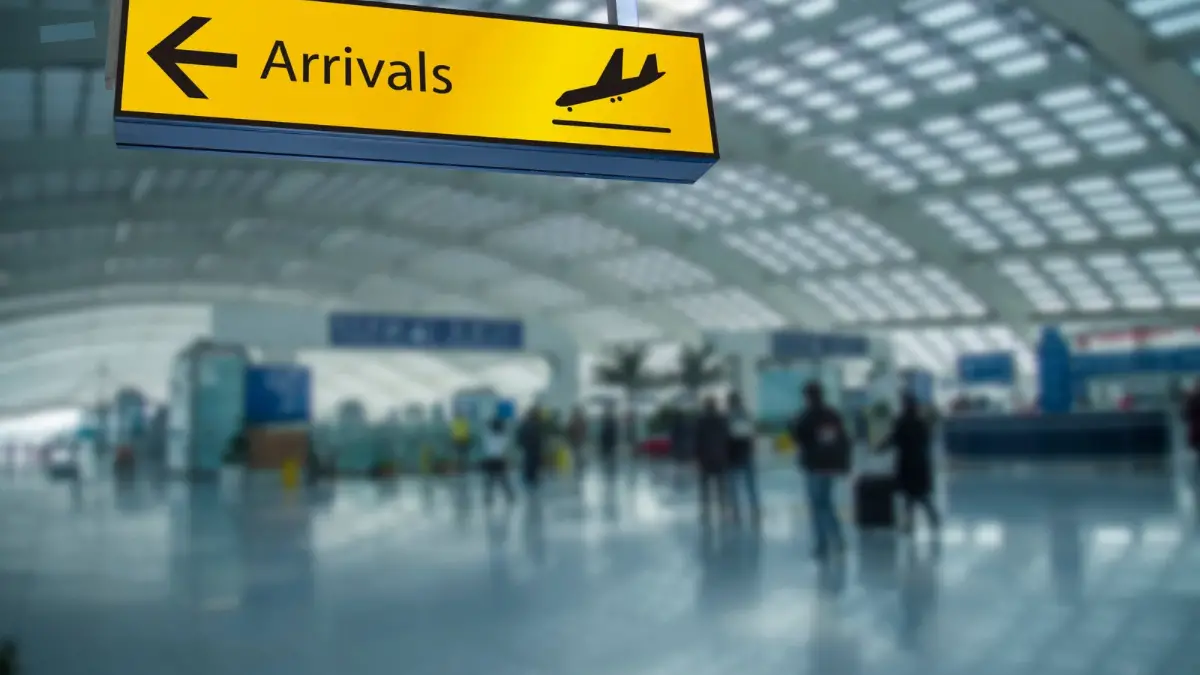Since the times of trans-Atlantic slave trades, Nigerians and Africans have been subject to migrating from their lands to the West. Although during the slave trade, Africans were carried against their will and sold as slaves, in the twentieth and twenty-first centuries, they continued to migrate to the West out of their own will in search of greater pasture and opportunities. This article will highlight some challenges faced when Nigerians are returning home from abroad.
The question of immigration remains a pressing subject of discussion in both international and local politics. For example, the upcoming presidential US election has the subject of illegal immigrants among the most pressing campaign points. Former president Donald Trump is weighing heavily on the need to close the country’s border to keep out illegal immigrants. But deeper analysis suggests, the man will be more than happy to keep out the legal migrants too.
In the UK, there had been quite a turmoil and to some extent, riots by citizens protesting the migration of Africans and people of other nationalities to their country. They argue that these immigrants take up employment opportunities that ordinarily should be theirs. And as such they view them as sort of an economic threat to their livelihoods.
Back home, in South Africa, the same problem of a continued face-off between resident South Africans and Nigerians has resulted in some seriously heated cases of xenophobia.
And as it so happens, Nigerians being the most populous black Nation on earth, have their citizens caught up in virtually all these hotspots of immigration tensions. For example, in 2022, when Russia invaded Ukraine, Nigerians were yet again caught between the warring sides and subjected to painful cases of racial discrimination. While the white Ukrainians were given a free pass into neighboring Romania, Nigerians were left stranded. If not for the timely intervention of the Federal Government and our local airline which offered to shuttle Nigerians back home, the story would have been altogether very bitter.
The above is only one side of the coin. Nigerians face problems while living abroad, and on the other hand, they also face other problems while returning home. This is the issue of cultural and social change that happens during their time living away abroad. And the shifts they have to undergo to reconnect with the traditions and culture of Nigeria should they be required to move back.
The essay will look into these challenges from the viewpoints of culture, and family and proffer recommendations on how to handle the shifts.

Challenges faced when returning home from abroad
- Cultural Dissonance and Reacclimatization
One of the foremost challenges is cultural dissonance. Nigerians who have spent many years in the West often find themselves grappling with the nuances of their native culture upon return.
Westernized habits and attitudes—shaped by different societal norms and values—may clash with traditional Nigerian practices. For example, the collectivist ethos prevalent in Nigeria, emphasizing community and extended family obligations, can feel at odds with the individualistic mindset that many expatriates have adopted.
This clash can create discomfort and confusion as individuals navigate social expectations and interpersonal dynamics.
Moreover, expatriates and their children, who have grown up in the West, might struggle to understand or appreciate local customs, languages, and social norms.
For the children, who might have little to no exposure to Nigerian culture, the transition can be particularly jarring. They may find themselves isolated or misunderstood in a society that values deep-rooted traditions and communal ties.
- Integration Challenges
The process of integration involves more than just cultural adjustment; it also encompasses practical challenges.
The infrastructural and administrative systems in Nigeria, such as those related to healthcare, education, and public services, often differ significantly from those in Western countries. Navigating these systems can be daunting, especially if one is accustomed to the efficiency and convenience of Western services.
Issues such as power outages, inconsistent water supply, and bureaucratic red tape can exacerbate the sense of disorientation.
Additionally, returning expatriates might encounter economic challenges. The cost of living, though generally lower in Nigeria compared to Western countries, can still be substantial, particularly in urban centers. Economic instability and fluctuating currency rates can impact financial planning and lifestyle adjustments.
For expatriates used to a different standard of living, these economic realities can be a source of stress and dissatisfaction.
- Family Dynamics and Social Integration
Family dynamics often undergo significant changes upon returning to Nigeria. For expatriates who have raised their children in the West, the transition involves not only adjusting their own expectations but also managing the expectations of extended family members.
There can be tensions between modern and traditional values, particularly concerning child-rearing practices and gender roles. Grandparents and other relatives may have strong opinions on how children should be raised, which can lead to friction and misunderstandings.
Social integration also poses challenges. Rebuilding a social network in Nigeria can be a slow process, especially if the returning expatriates had limited contact with their home country while abroad.
Establishing new relationships and reconnecting with old ones requires effort and patience. Additionally, there can be a sense of disconnection from friends and acquaintances who may have remained in Nigeria and evolved in different ways during the expatriates’ absence.
Recommendations
Nigerians returning home after many years abroad face a range of challenges, from cultural dislocation to family dynamics. Addressing these challenges effectively requires a multi-faceted approach:
- Cultural Reorientation Programs:
When desirable, workshops and seminars to help returnees understand and navigate contemporary Nigerian social norms and practices should be established. These should cover local customs, legal frameworks, and everyday life.
Communities with high population of returning Niwgriand who had lived abroad can design these programs to make it easy for them to reconnect and reintegrate.
By facilitating community events that allow returnees to engage with residents and build social networks, this can be achieved. These activities can help ease the transition and foster a sense of belonging.
2. Family and Social Support
Professional sociologists should offer counseling services to address family dynamics and expectations. This can help both the returnees and their family members adjust to new roles and relationships.
A warm and receptive medium for both the returning side of the family and the resident family should be established. This will help quench any awkwardness that may arise.
Create support groups for returnees where they can share experiences, challenges, and strategies for adaptation. These networks can offer practical advice and emotional support.
Additionally, by sharing experiences, knowledge can be exchanged between the locals and the returning expatriates. This can provide valuable lessons for aspiring migrants from the community on the do’s and don’ts of migration.
3. Employment and Economic Opportunities
Those who have lived and worked aboard happen to have added advantage when it comes to looking for jobs in the Nigerian labour market.
Nigerian employers of labor will hardly skip a foreign-trained applicant in favor of locally trained. Returning Nigerians can do well to take advantage of the edge their expatriate experience gives them but this must not be abused.
4. Legal and Bureaucratic Guidance
The laws and legal system of Nigeria, although copied from the British and US, vary greatly in practice from what is obtainable in those countries.
Returning Nigerians will be met with a system that is nearly broken and dysfunctional and will be wise to be armed with the knowledge of how to navigate it.
The Nigerian police do not relate with civilians in a similar way the American police do and it will be cautious to know exactly how to handle such situations. Bribery and corruption may appear brazen and alien but returning Nigerians sooner rather than later find themselves succumbing to the menace. It will be recommended that they try very hard to resist the temptation and uphold what they learned abroad.
5. Educational and Healthcare Services
The educational system of Nigeria varies greatly from that of the West. Returning Nigwrisnd will have a hard time adjusting and selecting suitable schools for their children. The children will experience shock when they are transitioned from Western schools down to the Nigerian standard.
Except the returnee is rich, they will have to make do with an underwhelming education system.
But on the part of health care, they will experience a difference in the manner and procedure through which they get care. Bad and inefficient as the Nigerian healthcare system is, returning Nigerians often find the speed of getting care to be truly impressive. The quality of Nigerian doctors is equally impressive. After all, Nigerian doctors form the bulk of professionals who are among the migrating Nigerians.
Conclusion
In sum, returning to Nigeria after years of living in the West involves navigating a landscape of cultural, practical, and social challenges. The process requires a delicate balance of embracing the familiar while adapting to new realities.
Understanding and addressing these challenges—through open communication, patience, and a willingness to engage with both old and new aspects of life—can ease the transition and help expatriates and their families find their footing in a changed yet familiar environment.






